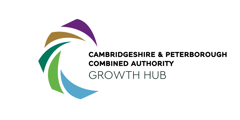Intellectual property is the aspects of your business that you have created using your mind.
This is how the Intellectual Property Office defines intellectual property:
What counts as intellectual property
Intellectual property is something that you create using your mind - for example, a story, an invention, an artistic work or a symbol.
You own intellectual property if you:
- created it (and it meets the requirements for copyright, a patent or a design)
- bought intellectual property rights from the creator or a previous owner
- have a brand that could be a trade mark, for example, a well-known product name
Intellectual property can:
- have more than one owner
- belong to people or businesses
- be sold or transferred
Intellectual property rights allow you to make money from the intellectual property you own.
Intellectual property if you’re self-employed
If you’re self-employed, you usually own the intellectual property even if your work was commissioned by someone else - unless your contract with them gives them the rights.
You usually will not own the intellectual property for something you created as part of your work while you were employed by someone else.
Here are four tips to help you navigate the world of IP and protecting your ideas – but it is really important to get proper legal advice before you register your IP.
What protection is on offer?
Before obtaining intellectual property protection, it’s important to understand the different types available and what they cost.
Here are the main options:
- Patents can be a powerful form of IP, particularly if your idea is cheap and easy to copy, as they stop others from copying your product or service for up to 20 years both in design phase and while it is on sale.
- With a Registered Design, the appearance of your product is protected for up to 25 years, but not the functionality of the idea itself. As many products are unpatentable, obtaining a Registered Design is a quick and cheap alternative.
- Registered Trademarks protect pretty much anything that signifies the commercial origin of a good or service. This can include logos, symbols, words, slogans, sounds etc. Trademark registration provides legal certainty and gives a strong basis for licensing and franchising a brand.
- Unregistered rights are far more expensive to enforce than registered rights, however you don’t have to apply for them in the UK and include unregistered designs and copyright.
Where do I file for IP?
It’s important to remember that all intellectual property rights are territorial, meaning they are only valid in certain countries. Only very few seek global protection as it incurs significant fees. The only places you’ll really need to protect your product are in the countries – both currently and potentially – you manufacture/trade in. The Intellectual Property Office can help you to not only register your IP in the UK, but also guide you through your overseas registration options as well.
How much will it cost me?
Before applying, you will need to budget for the prospective protection costs, such as application fees, search fees and drafting fees, as well as ongoing prosecution costs and annuity fees. Most businesses tend to focus on the former and neglect the latter. Make sure you don’t get caught out!
How can I put my IP protection to best use?
If you’re currently unable to produce your product or service to the scale desirable, it might be worth licensing your rights to a company than can. That way, you can still make a profit from your invention, but others will commercialise it.
You’ll also need to be in a position to defend your right if they are infringed. However, make sure your claim is well founded prior to launching proceedings, as a groundless threat of infringement may mean your competitor can make a claim against you.
Get Support:
Contact Us
